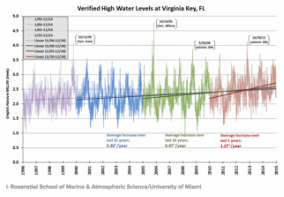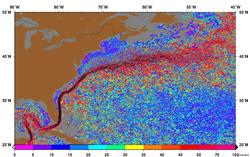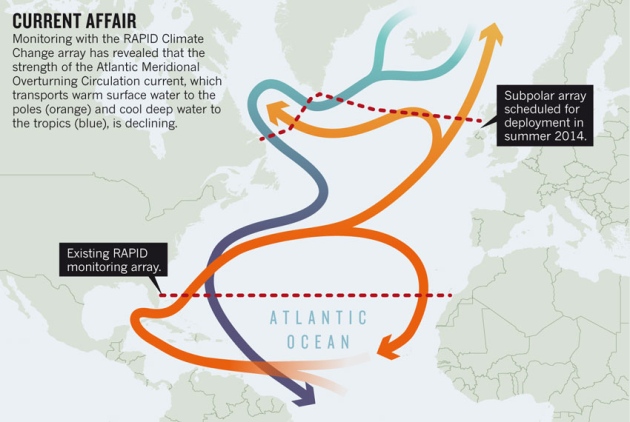He has shown that since the deployment of the RAPID monitoring array which is string of moored buoys across the Atlantic there has been a two thirds reduction in the speed of the Gulf Stream current.

This is similar to the NOAA report which showed a similar sea level rise in the Northeast of the USA between 2009 and 2010.
However there are other factors involved that can change the level of the sea locally. A steady trade wind can cause water to pile up on the downwind shore, the gravitational pull of the mass of ice in Greenland can pull extra water to its shores and also ocean currents and tides can cause water to pile up or sink away.

There is no overall increase in the quantity of water but these local changes can flood houses and towns that were previously dry.



 RSS Feed
RSS Feed